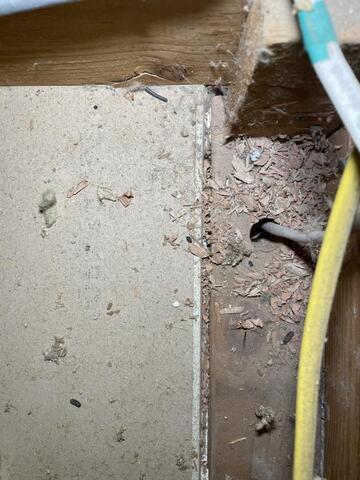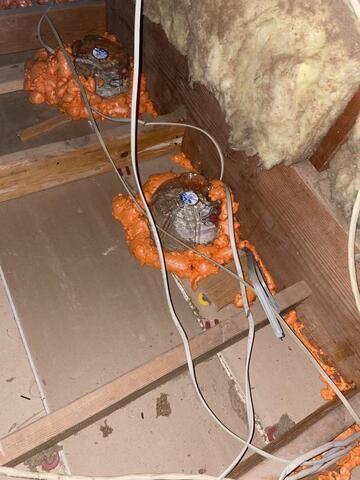It’s Not Your AC, It’s Your Attic: A Checklist for Diagnosing Your Home
The heat this summer in the Central Valley has been relentless. Many of us have experienced those 110-degree-plus days where no matter how low you set the thermostat, the temperature in your home just keeps climbing. Dozens of our customers have called the HVAC repair technician only to be told that there’s nothing wrong with their air conditioner. Most HVAC systems last between 15 and 25 years, depending on the type of climate you live in. This number may be on the lower end for Fresno-area homeowners, especially if your attic is not properly air-sealed and insulated. Believe it or not, the real culprit behind your home’s inability to stay cool is not your AC, it’s likely your attic.
Understanding the Role of Your Attic: It’s Not Just For Storage
Although your attic is often “out of sight, out of mind,” it’s the most critical area of your home to insulate in order to maintain a comfortable temperature and humidity level. Your attic is the buffer between the external environment and your living space. Proper insulation and air-sealing in your attic can significantly impact your home’s energy efficiency and comfort level.
When your attic isn’t air-sealed, hot air can infiltrate your home during the summer and cold air during the winter. This means your HVAC system has to work harder to maintain a comfortable temperature, leading to higher energy bills and wear and tear on your system.

Why Attic Insulation Matters
A well-insulated attic prevents this heat flow, keeping your home cool in the summer and warm in the winter. Without air sealing and sufficient insulation, the hot air from outside can easily penetrate your home, making your air conditioning system work overtime. If you’ve ever noticed your air conditioner constantly running while the temperature inside your home just keeps going up, then you’ve experienced this problem.
Energy Star recommends that homes in hot climates like Fresno have insulation with an R-value of R30 to R60. The R-value measures the insulation’s ability to resist heat flow; the higher the R-value, the better the insulation is at preventing heat flow. Many older homes in Fresno* – and even homes built in the last twenty years – are under-insulated. This happens in part because building codes change over time, with the minimum insulation levels increasing over the years. Also if your attic isn’t air-sealed or properly vented, moisture can get into your attic, further reducing the R-value of your insulation.
*Energy Star estimates that 90% of all homes in the US are under-insulated.
The Importance of Air-Sealing
Air-sealing your attic can be just as important as proper insulation. Air leaks in your attic can undermine even the best insulation. Common areas for leaks include around recessed lighting, top plates, and plumbing and wire penetrations.
Energy Star highlights that sealing these leaks can improve your home’s energy efficiency by preventing conditioned air from escaping and unconditioned air from entering. This means your HVAC system won’t have to work as hard, leading to lower energy bills and a more comfortable home. It’s even estimated that an unsealed attic is the equivalent of running your HVAC system with a window open, 365 days a year.

Benefits of Proper Attic Insulation and Air-Sealing
1. Improved Comfort: Proper insulation and air-sealing help keep the temperature consistently comfortable year-round.
2. Energy Savings: Reducing the strain on your HVAC system can lower your energy bills. According to Energy Star, homeowners can save up to 15% on heating and cooling costs by air-sealing their homes and adding insulation in attics.
3. HVAC Longevity: When your HVAC system is less strained during it’s day-to-day operation, it undergoes less wear and tear, which can extend its lifespan and reduce the need for expensive repairs or replacements.
4. Environmental Impact: Improving the energy efficiency of your home reduces your energy usage and the strain you put on the environment.
Do This 5-Minute DIY Assessment
Do you have rooms that get hotter or colder than the rest of your house?
Do you have rooms that feel drafty?
Does your house get dusty?
Does your AC (or heat in the winter) run constantly or turn on and off frequently?
Do you or your family suffer from asthma, allergies, or other health problems?
Do you notice any strange odors or musty smells in your home?
Do you use cooling fans or space heaters to keep your home comfortable?
Is there dust or dirt around your registers?
Do you have high cooling/heating bills?
Have you had frequent or unexpected HVAC system or roof maintenance?
If you answered “yes” to any of these questions, you may have a neglected attic contributing to your home’s discomfort.
Give Tyson Energy Solutions a call. We will inspect your attic, take pictures of exactly what the issues are, and explain potential solutions. We can help you to make your home more comfortable and lower the cost of owning your home for as long as you live there.

